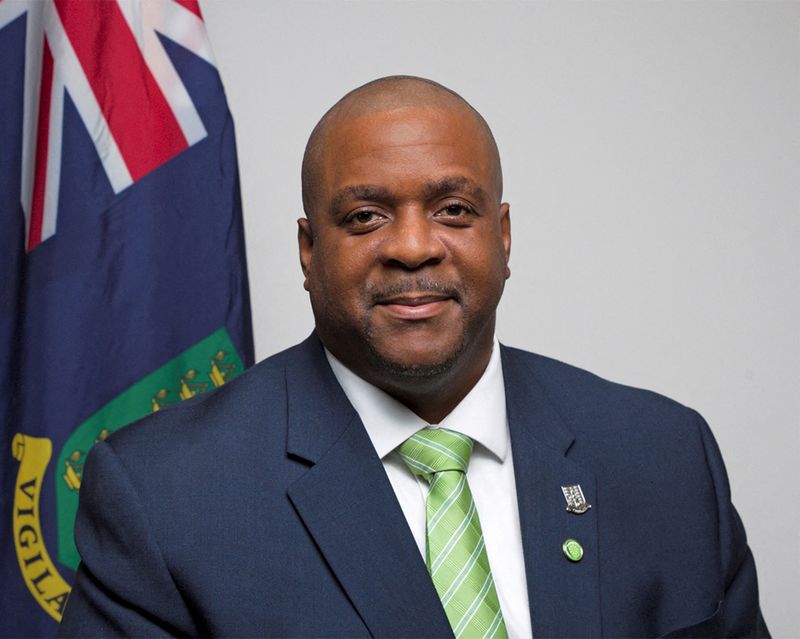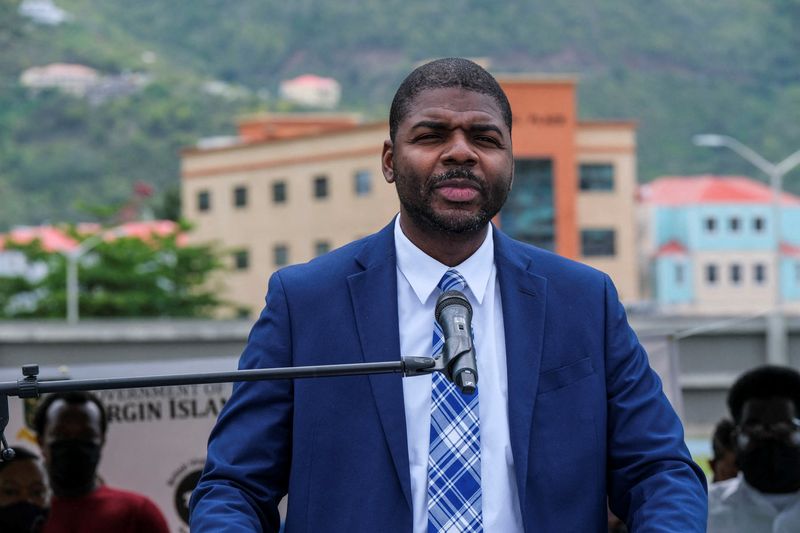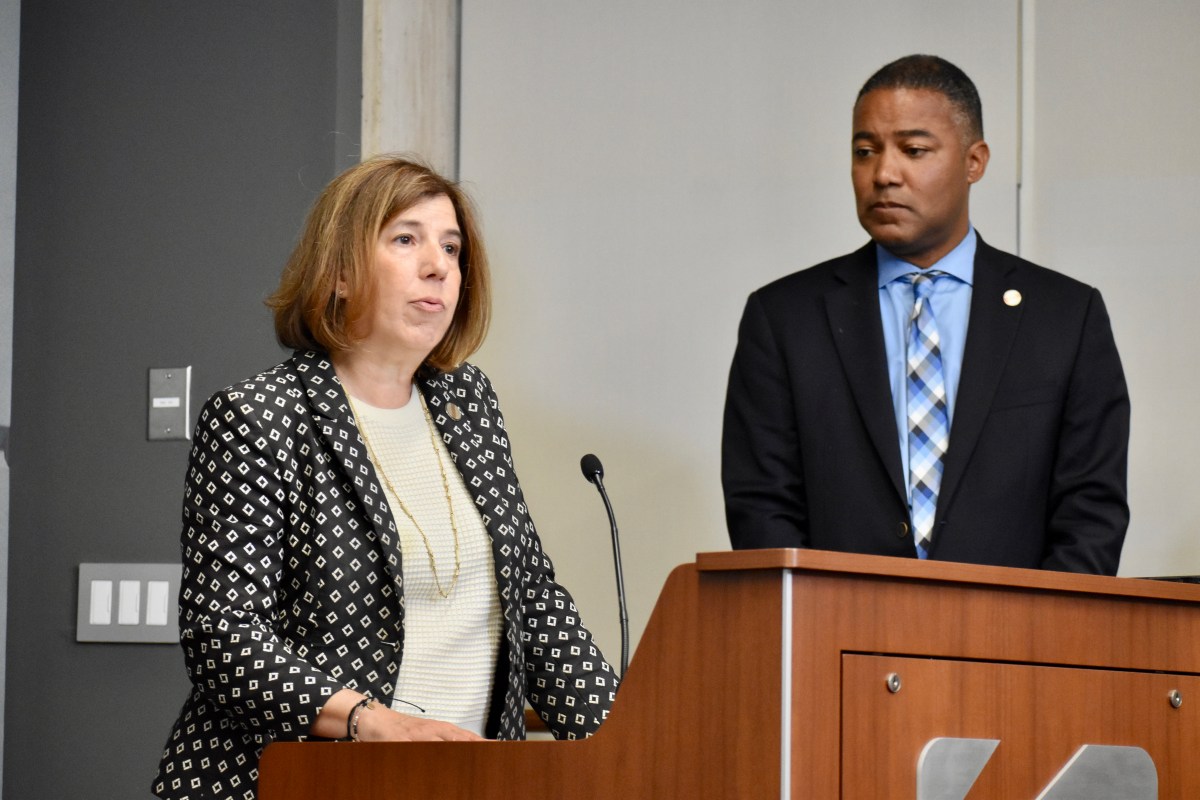MIAMI (Reuters) -A U.S. judge on Wednesday ruled that Andrew Fahie, premier of the British Virgin Islands, will not face pre-trial detention while awaiting proceedings on charges that he conspired to launder money and traffic drugs into the United States.
Judge Alicia Otazo Reyes of the U.S. District Court for the Southern District of Florida, contrary to the request of a U.S. prosecutor, sided with Fahie’s attorney Theresa Van Vliet that he will not flee because he has ties to the United States, where his two daughters live.
Fahie, 51, was arrested at a Miami airport along with the managing director of the territory’s Ports Authority, Oleanvine Maynard, according to a complaint by the U.S. Drug Enforcement Administration (DEA).
That came the day before a commission of inquiry recommended that the British Virgin Islands, an overseas territory of the United Kingdom, have its constitution and house of assembly suspended due to dishonesty in governance.
Otazo Reyes said Fahie would have to post a $500,000 bond and will remain in monitored confinement in the apartment where his daughters live.
“I do believe that … the terms that I have imposed will ensure his appearance,” Otazo Reyes said.
U.S. prosecutor Frederic Shadley said he plans to appeal the decision.
“The Defendant has repeatedly shown a complete and utter disregard for the rule of law, along with a willingness to obstruct justice,” Shadley wrote in a request for pre-trial detention. “He accepted bribes, committed crimes, worked with drug dealers, and agreed to pay bribes.”
Van Vliet said during the court proceedings that Fahie will plead not guilty. She declined to provide further comment.
Fahie’s arraignment, a court hearing typically used for defendants to formally enter a plea, is scheduled for May 25.
Van Vliet has called for Fahie’s immediate release on the grounds that he has diplomatic immunity by virtue of being the elected leader of the British Virgin Islands.
The Department of Justice says no such immunity exists because the British Virgin Islands is not a sovereign nation.
Separately on Wednesday, acting Premier Natalio Wheatley said he has proposed a “national unity government” in which the ruling Virgin Islands Party would enter a coalition with opposition parties, with Wheatley as its leader.
He said this would allow the BVI to implement reform while maintaining an independent government.
“No matter how uncomfortable the recommendations may be, they provide a golden opportunity to fundamentally change how we do things here in the British Virgin Islands, which I believe is achievable in the frame of democratic government,” he said.
Amanda Milling, a British member of parliament and Minister of State for Asia and the Middle East who arrived this week in the territory to speak with local leaders, said governance must improve.
“During my discussions with community and religious leaders, I heard about the impact corruption has had on the community here,” Milling said in a statement.
“Everyone I have met have agreed that there needs to be significant changes in the BVI to improve governance.”
(Additional reporting by Zarrin Ahmed; Writing by Anthony Esposito; Editing by Christian Plumb and Richard Chang)


























